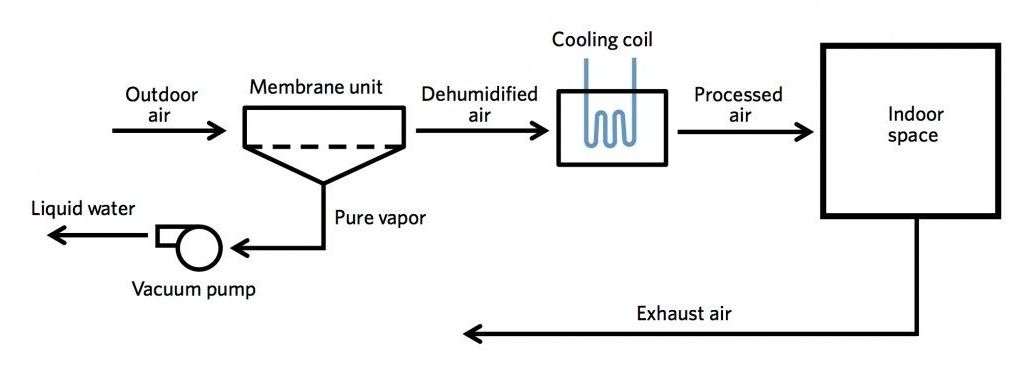About 40 percent of all the energy consumed by buildings worldwide is used for space heating and cooling. With the warming climate as well as growing populations and rising standards of living—especially in hot, humid regions of the developing world—the level of cooling and dehumidification needed to ensure comfort and protect human health is predicted to rise precipitously, pushing up global energy demand.
Much discussion is now focusing on replacing the greenhouse gases frequently used as refrigerants in today’s air conditioners. But another pressing concern is that most existing systems are extremely energy-inefficient.
“The main reason they’re inefficient is that they have two tasks to perform,” says Leslie Norford, the George Macomber (1948) Professor in Construction Management in the Department of Architecture. “They need to lower temperature and remove moisture, and doing both those things together takes a lot of extra energy.”
